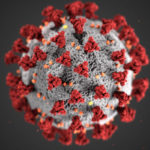States continue to drive toward improving the health of their residents and, because health care costs are a large and growing component of state budgets, governors also are looking for long-term, transformational ways to improve the efficiency of their Medicaid programs. Generally, a small segment of the enrollee population account for large portion of states’ Medicaid expenditures. Those individuals with complex care needs, also known as “super-utilizers,” tend to have a history of chronic illness, multiple comorbidities, special needs and other non-clinical complications that may be related to unstable housing, employment, food and transportation and interaction with the criminal justice system. They often use emergency departments and inpatient services when home and community-based interventions could be employed with good outcomes and at lower costs. By appropriately redirecting state funds to address the comprehensive needs of people with complex care needs, states can rein in escalating costs and improve the quality of care delivered to high-risk and vulnerable Medicaid beneficiaries.

Opioid and COVID-19 Related Resources
Recent Treasury Report Fails to Account for Allocated Coronavirus Relief Funds as the Country Faces Historic Drop in GDP and Record Unemployment
If state and local governments continue to struggle, so will America

Four Ways Congress Can Partner with States and Territories to Combat COVID-19

Strategies for COVID-19 Response for Populations Receiving Long-Term Care

State, Local Governments Urge Enhanced Federal Health Care Match During COVID-19 Pandemic

Organizations’ Letter Advocating for Enhanced Federal Medicaid Match

COVID-19 Testing in Long-Term Care Facilities

State Strategies to Support Access to Substance Use Disorder Treatment Services through the COVID-19 Pandemic













